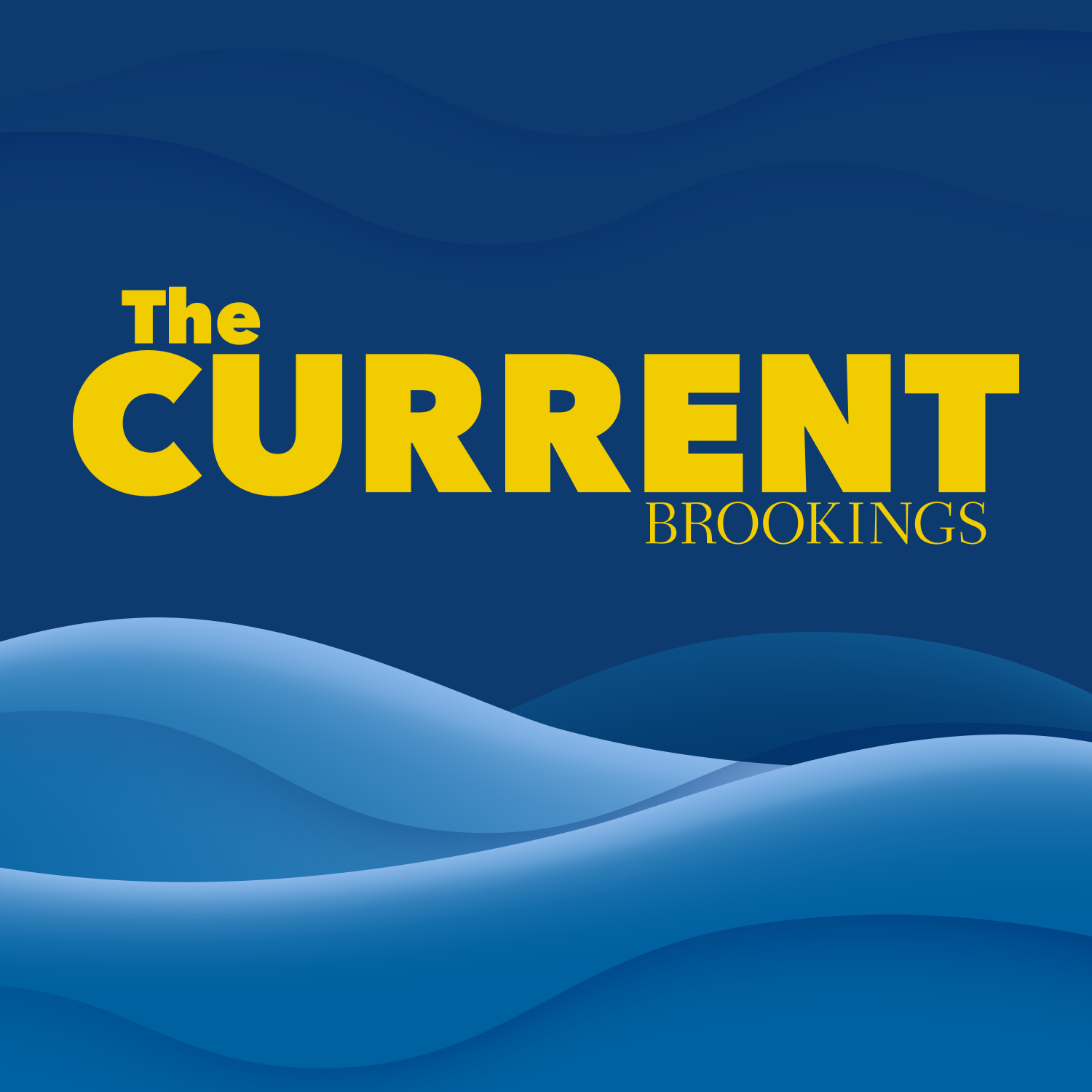China’s 20th Party Congress demonstrated that none of Beijing’s recent troubles, from public anger over COVID lockdowns to economic slowdowns and rising international tensions, have dented President Xi Jinping’s grip on power, says Patricia Kim. In this episode of The Current, Kim examines what leadership personnel changes and Xi’s domestic focus on national security mean for China’s near-term trajectory.
Related material:
- Checking in on China’s economy during the 20th Party Congress
- Will China’s strongman become even stronger? What the 20th Party Congress means for the United States
Listen to Brookings podcasts here, on Apple or Google podcasts or on Spotify, send email feedback to [email protected].
Thanks to audio engineer Gaston Reboredo.
TRANSCRIPT
PITA: China’s Party Congresses, held twice a decade, shape the Chinese Communist Party’s top leadership and signal the country’s domestic and foreign policy priorities for the coming years. Last week’s 20th Party Congress ushered President Xi Jinping into a third term in power, a widely anticipated move after term limits were abolished in 2018.
With us to discuss the outcomes of China’s 20th Party Congress is Patricia Kim, a David M. Rubenstein fellow with the Center for East Asia Policy Studies and the John L, Thornton China Center here at Brookings. Patricia, thanks so much for talking to us today.
KIM: Sure, happy to join you.
PITA: So, the headlines following this 20th Party Congress have largely been focused on Xi’s consolidation of power, so let’s start there. How would you characterize what we saw this past week?
KIM: So, the 20th Party Congress, from the major themes that emerged, to the personnel appointments that were announced, essentially confirmed that none of Beijing’s recent troubles, including its domestic economic woes, popular discontent with its extreme “zero-COVID” policies, as well as the sharp deterioration in many of its foreign relationships, have dented President Xi Jinping’s grip on power.
There was a lot of emphasis on the need to uphold Xi’s status as what they call the core leader, and Xi Jinping thought as the guiding vision for the party. And the lineup of the Standing Committee of the Politburo that was revealed on Sunday – which is basically the top decision-making body of China – was notable in that all of the members chosen were close confidantes of Xi, having worked for him either in the past or up to this point. For instance, China’s new number two, Li Qiang, who is set to succeed Li Keqiang as the next premier, was basically chosen for close ties to Xi. They served together some fifteen years ago in Zhejiang province. And Li, who is currently the Shanghai party secretary, implemented what many saw as the disastrous lockdown of Shanghai earlier this year, which led to food shortages, and major economic slowdown, and lots of popular anger in service of Xi’s strict “zero-COVID” policy. But the fact that he made it to the number two position indicates that loyalty to Xi triumphs over all in China’s system today.
Interestingly, no one with ties to a rival faction that was associated with former President Hu Jintao and the Communist Youth League made it to the Standing Committee. This faction had been decimated of its power over the years in any case but the unscripted and seemingly forced exit of former President Hu from the closing session of the Party Congress served as a fitting visual demonstration of Xi’s consolidation of authority over the political system.
PITA: Can you speak a little bit about any potential next generation? Oftentimes these Party Congresses are showcases for who might be coming up the ranks. Was there any sign of that this time?
KIM: Actually, the congress was notable in that there was no designated successor who emerged among the top personnel appointments, and so, again, this suggests that Xi will really have unchecked power to steer the country according to his will and his vision in the coming years.
PITA: How have COVID and the general slowdown of the world economy shaped that vision and China’s outlook for the near future?
KIM: So, Xi’s work report to the Party Congress reflected a mix of both triumphalism and a warning of the turbulent times ahead, and his report underscored what is the huge perception gap between Beijing and its western counterparts on China’s recent track record. So in his opening speech, Xi praised the party for its achievement in the past five years of protecting the Chinese people through its zero-COVID policy, quote restoring order in Hong Kong, countering Taiwan independence, and resolutely safeguarding China dignity and court interest. That’s how he phrased it, and I think Xi’s positive depiction of these policies stand in sharp contrast to the views in Washington and major capitals across Europe and Asia where many of China’s recent policy choices have been seen as threatening or counterproductive at best.
Xi also used the Party Congress to call on his compatriots to adopt a, quote, fighting spirit, and his speech channeled both the apprehension in Beijing that its path national rejuvenation won’t necessarily be smooth and that it will require a concerted effort, but at the same time he tried to project confidence as well, and said that China is on an irreversible course to its rise.
PITA: As we said at the top, one of the major headlines out of this has been Xi’s consolidation of power. One of the smaller things that caught my eye was that the one lone female member of the Politburo stepped down, making this an all-male Politburo for the first time since 1997. I was wondering if there were any other smaller moments or smaller developments from this past week you think shouldn’t be overlooked, that people should make sure to focus on?
KIM: Sure, so I mean the obviously the leadership lineup of China was very noticeable in that there were no female leaders, so clearly that is not at the top of Beijing’s mind.
Also much of the media attention around Xi’s speech was focused on the fact that his work report this year had a much greater emphasis on national security relative to previous speeches, and a lot of people were counting how many times the term appeared in the speech. But beyond just counting, though, I think it’s worth looking at the report’s section on national security, which is quite interesting because it reveals how Beijing thinks about national security. And there are some striking differences and similarities between how we here in the United States might think about national security versus those whose leaders who are sitting in Beijing.
One key difference is that Beijing’s concept of national security is actually quite focused on what it calls domestic stability and countering threats from within its borders, perhaps even more so than those threats that are emanating from the outside. And in the report, political security, that is the party’s absolute grip on power at home, is highlighted first and foremost as fundamental to China’s national security. So I think that’s something very notable that we should keep an eye on.
So, the section on national security also calls for the need for China to secure access to food and energy and to secure its key supply chains, which I think is in line with a growing focus here in the United States and elsewhere on thinking about national security more comprehensively. So this is where I see some similar threads.
PITA: With that in mind, in terms of this sort of broader geopolitical competition, how the U.S. is looking at China, how China is looking at the U.S., how do you see Xi’s agenda shaping the near future from that bigger geopolitical perspective?
KIM: The official confirmation of Xi’s third term and his status as the core of the party at the Party Congress was largely expected. The unveiling of China’s top leadership body, staffed completely with Xi loyalists suggests the party has essentially granted Xi the absolute power he’s argued is necessary to steer his country towards what he calls national rejuvenation. And while not everyone in China may agree with Xi’s direction, and there is a lot of unhappiness with the increasingly ideological turn in China’s political system, clearly there is no alternative power centers that can challenge Xi’s rule or his trajectory at this point. So in terms of what to expect from China, I think we’re likely to see more in recent years – that is more, not less, state intervention in the economy in service to what Beijing calls a socialist market economy and working toward common prosperity. We’re going to see more efforts on Beijing’s goal of quote-unquote “national reunification with Taiwan” and an increase in China’s power across all domains to continue to build its influence in the international arena. Many of these policies are the very ones that have raised threat perceptions of China around the world and have exacerbated competitive dynamics in the international arena.
In a nutshell, I think we can expect Beijing to double down on its more aggressive posture at home and abroad that has characterized Xi’s rule since 2012, and so we shouldn’t hold our breaths for a major course correction by the Chinese political system in the near-term future.
PITA: All right. Well, Patricia, thank you very much for talking to us today and explaining about this.
KIM: Sure, happy to join you, Adrianna.
The Brookings Institution is committed to quality, independence, and impact.
We are supported by a diverse array of funders. In line with our values and policies, each Brookings publication represents the sole views of its author(s).







Commentary
PodcastWhat does Xi Jinping’s power move mean for China?
October 25, 2022
Listen on
The Current Podcast